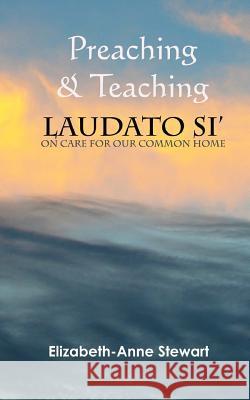Preaching & Teaching LAUDATO SI': On Care for Our Common Home » książka
Preaching & Teaching LAUDATO SI': On Care for Our Common Home
ISBN-13: 9781515378396 / Angielski / Miękka / 2015 / 146 str.
Preaching and Teaching Laudato Si' is not a synopsis of Pope Francis' Encyclical on the Environment, but a simply written primer for those who wish to preach, teach or reflect on the spiritual implications of a green agenda; it is a resource for those of any faith who wish to respond to the Pope's plea for ecological conversion. Though the book is primarily intended for preachers and teachers, it offers basic principles for anyone who wishes to learn more about sustainable living. Beginning with an introductory section which presents the range of ecological crises currently facing humanity, the book includes an Ecological Examination of Conscience based loosely (and somewhat playfully) on the idea of Negative and Positive "Confessions" from the Egyptian Book of the Dead. This Examination is not all-encompassing, but it does open readers to the possibility that their habits and lifestyle may be harming Creation. The intention here is not to create guilt, but to initiate change, however infinitesimal. There are two chapters which address Preachers, though the content may be useful for others as well. "Preaching to the Choir" asks how one should present the Encyclical to those who are already open to its content. In other words, the assembly has no need of conversion, and so the preacher's task is not to inform but to support. Conversely, "Preaching to the Pew" asks how a preacher should approach those who dismiss the document as a "Papal Mistake." In these two chapters, author Elizabeth-Anne Stewart discusses what is liturgically appropriate as well as what is pastorally sensitive: different approaches to "unpacking" the Encyclical may vary according to the constituents one serves. The two chapters which primarily are geared towards teachers explore ways of reaching Millennials and Generation Z-- the two generations that have inherited the ecological mess mostly created by Baby Boomers and their offspring, Gen X. Here, Stewart draws on more than three decades of incorporating social justice issues in Humanities classes, especially social justice and the environment. This little book is not a scholarly work, but a series of reflections meant for every day people who happen to preach, teach or think
Zawartość książki może nie spełniać oczekiwań – reklamacje nie obejmują treści, która mogła nie być redakcyjnie ani merytorycznie opracowana.











